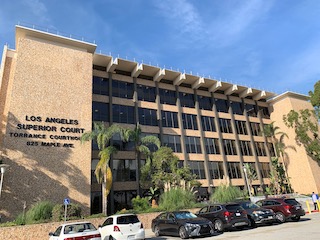When a party seeks to introduce evidence that is “indisputably true,” one can request that the judge take judicial notice of a particular fact to avoid having to prove it is true. Kilroy v. State of California (2004) 119 Cal. App. 4th 140, 148. For example, if one wants to introduce evidence of the exact time of sunrise or sunset, judicial notice is a good method of doing so. Likewise, one can ask the judge to take judicial notice of the fact that ice will melt if left in the open sun when the outside temperature is 70 degrees Fahrenheit.
As one might suspect, this type of request can invite clever attempts to smuggle in “facts” that are really open to dispute.
The Gist of this Article: Requesting that a judge take judicial notice of some generally known or well-established fact (i.e., the time of sunset or sunrise) has strict limits which one should know about before requesting judicial notice.
California Evidence Code § 451 and § 452 distinguish between mandatory judicial notice matters and permissive judicial notice, respectively. Section 451 provides for mandatory judicial notice of “decisional, constitutional and public statutory law,” governmental rules and regulations, rules of pleading, practice and procedure, the “true signification of all English words and phrases, and . . . legal expressions,” and “[f]acts and propositions of generalized knowledge that are so universally known that they cannot reasonably be the subject of dispute.”
Section 452, on the other hand, provides for “permissive” judicial notice “to the extent . . . not embraced within section 451” of laws, regulations, legislative enactments, official government acts, court records, rules of court, international law, and “acts and propositions that are of such common knowledge within the territorial jurisdiction of the court that they cannot reasonably be the subject of dispute” and “acts and propositions that are not reasonably subject to dispute and are capable of immediate and accurate determination by resort to sources of reasonably indisputable accuracy.”
 Torrance Courthouse
Torrance Courthouse
The procedure for requesting judicial notice is set forth in sections 453 through 458, but before one prepares a request for judicial notice, it is wise to know the limitations and debatable uses of judicial notice, as follows:
- A court cannot take judicial notice of the truth of hearsay statements in a document, unless an exception to the hearsay rule applies. People v. Wood (1998) 17 Cal. 4th 448, 455;
- A court can take judicial notice of trial court proceedings in another case, i.e., briefs, notices, pleadings, exhibits, declarations, minute orders and rulings, jury instructions, the jury verdict and trial transcripts are regularly the subjects of judicial notice and are perhaps the most common use of judicial notice. People v. Purata (1996) 42 Cal. App. 4th 489, 495;
- The hearsay rule also applies to preclude judicial notice of argument or comments by counsel and judges in other proceedings. People v. Surety Ins. Co. (1982); People v. Rubio (1977) 71 Cal. App. 3d 757, 766, overruled on another ground by People v. Freeman (1978) 22 Cal. 3d 434;
- Be careful seeking judicial notice of unpublished Court of Appeal decisions. Given the purpose of judicial notice, a judge should have the discretion to take judicial notice of unpublished decisions by the Court of Appeal, notwithstanding the prohibition on citation of such opinions in California Rules of Court, rule 8.1115(a); see Gilbert v. Master Washer & Stamping Co. (2001) 87 Cal. App. 4th 212, 218, n. 4 (“Although the Court of Appeal opinion . . . is not published, we may take judicial thereof as a court record pursuant to Evidence Code section 452, subdivision (d)(1))”). However, in Hernandez v. Restoration Hardware, Inc. (2018) 4 Cal. 5th 260, 269 n. 2, the California Supreme Court declined to take judicial notice of unpublished Court of Appeal opinions because of the prohibition in the rules: “With certain exceptions, not applicable here, the Rules of Court generally prohibit us from noticing unpublished opinions (Cal. Rules of Court, rule 8.1115).
- Courts will not take judicial notice of irrelevant material. People ex rel. Lockyer v. Shamrock Foods Co. (2000) 24 Cal. 4th 415, 422 n. 2.
- Courts will deny judicial notice of trial court opinions cited as legal authority. Bolanos v. Superior Court (2008) 169 Cal. App. 4th 744, 761 (“a written trial court ruling has no precedential value.”).
- Appellate court ordinarily will not take judicial notice of matters that could have been but were not presented in the trial court. However, judicial notice may be taken on appeal when the trial court was asked but refused to take judicial notice. Sebago, Inc. v. City of Alameda (1989) 211 Cal. App. 3d 1372, 1380.
This article is based largely upon an article written by David Axelrad, a partner at Horvitz & Levy, appearing on page 5 in the September 20, 2021 Daily Journal.
For more information about evidentiary issues, please click on the following articles:
 Torrance Courthouse
Torrance Courthouse